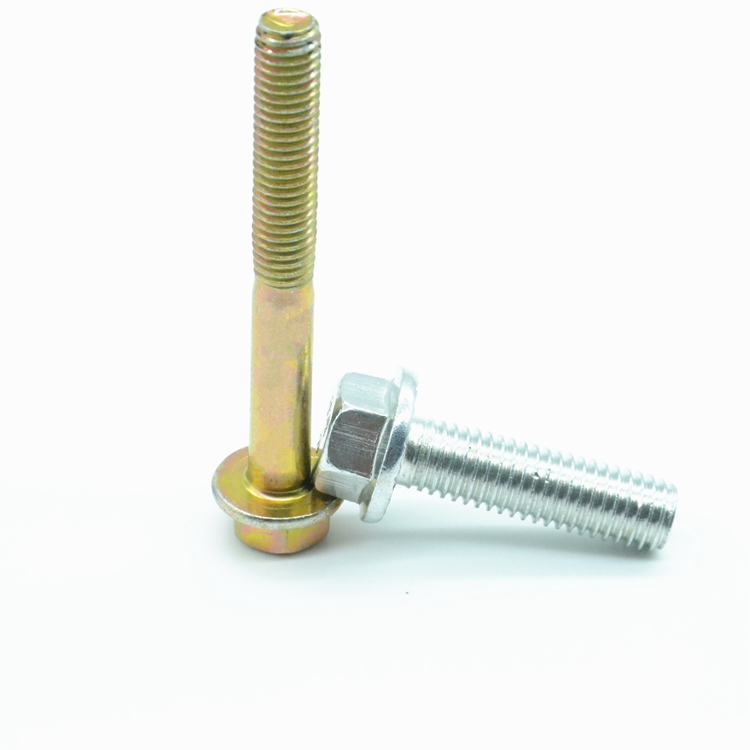stud bolt m20 ราคา
Dec . 01, 2024 09:13 Back to list
stud bolt m20 ราคา
Understanding the Pricing of M20 Stud Bolts Insights and Factors
When it comes to construction and manufacturing, fasteners play a crucial role in ensuring the structural integrity and durability of various projects. One of the commonly used fasteners is the stud bolt, specifically the M20 stud bolt. This article provides an overview of the M20 stud bolt, its applications, and the factors influencing its price.
What is an M20 Stud Bolt?
The designation 'M20' refers to the nominal diameter of the stud bolt, which is 20 millimeters. Stud bolts are typically made from high-strength materials that provide significant tensile strength and resistance to shear forces. They are commonly used in flanged pipes, equipment installations, structural assemblies, and other heavy-duty applications where secure fastening is essential.
Applications of M20 Stud Bolts
M20 stud bolts find extensive use in various industries, including
1. Construction In building frameworks and structural supports, M20 stud bolts are integral in securing beams, columns, and other load-bearing elements.
2. Manufacturing Factories utilize these bolts to assemble machinery and equipment, ensuring that components remain firmly connected under operational stresses.
3. Automotive In vehicle production, M20 stud bolts can be used in chassis assembly and securing critical engine components.
4. Oil and Gas These bolts are essential in equipment like pipelines and valves, where high-pressure and challenging conditions require robust fastening solutions.
Factors Influencing the Price of M20 Stud Bolts
stud bolt m20 ราคา

The price of M20 stud bolts can vary significantly based on several factors
1. Material Composition The type of material used in manufacturing M20 studs greatly affects their cost. Common materials include carbon steel, stainless steel, and alloy steel. For instance, stainless steel bolts are generally more expensive due to their corrosion resistance properties.
2. Manufacturing Standards Compliance with specific industry standards (like ASTM, DIN, or ISO) can influence pricing. Stud bolts manufactured to meet stringent quality and safety standards often incur higher production costs, which are then passed on to consumers.
3. Surface Treatment Many M20 stud bolts undergo surface treatments to enhance their corrosion resistance and longevity. Processes like galvanization or zinc plating add to the manufacturing cost, which directly influences the selling price.
4. Quantity Ordered Like many industrial products, bulk purchasing can lead to cost reductions. Buying in large quantities typically allows suppliers to offer better rates, while smaller orders might be subject to higher per-unit prices.
5. Market Demand Prices can fluctuate based on supply and demand dynamics. For example, during construction booms or significant industrial projects, the increased demand for fasteners can drive prices up.
6. Geographic Location The cost of transporting materials and the regional availability of raw materials can affect pricing. In areas where manufacturing and supply chains are well established, prices may be more competitive.
Conclusion
Understanding the various elements that contribute to the price of M20 stud bolts can empower consumers, manufacturers, and contractors to make more informed purchasing decisions. Whether for construction, manufacturing, or other industrial uses, being aware of the factors that influence pricing can help in budgeting and project management.
For anyone involved in a project requiring M20 stud bolts, it is essential to consider not just the upfront costs but the long-term value associated with choosing high-quality fasteners. While it may be tempting to opt for the cheapest available option, investing in quality materials can lead to improved safety, better performance, and reduced maintenance costs in the long run.
In conclusion, the pricing of M20 stud bolts is not merely based on their physical characteristics but is a complex interplay of materials, standards, treatments, and market conditions. By understanding these factors, stakeholders can ensure they choose the right fasteners for their specific needs while also navigating the nuances of pricing effectively.
Latest news
-
High-Quality Panel Stud Bolt Reliable Panel Stud Bolt Factory & Suppliers
NewsJul.08,2025
-
High-Precision Fine Thread Locknuts Manufacturer & Supplier Custom Solutions
NewsJul.08,2025
-
PH Imperial Stud Bolt – High Strength Fasteners from Leading Supplier & Factory
NewsJul.07,2025
-
High-Quality Allen Wrench Bolts Leading Factory, Company & Suppliers
NewsJul.07,2025
-
Wholesale Ball Stud Bolt - High Quality Supplier & Factory Price Reliable Wholesale Ball Stud Bolt Company
NewsJul.06,2025
-
High-Strength Alloy Bolts Manufacturer & Supplier Quality Alloy Fasteners Factory
NewsJul.06,2025
